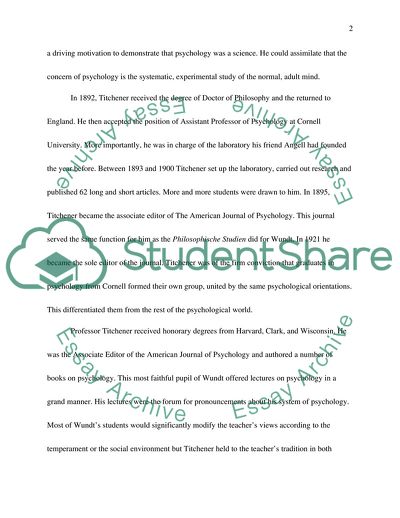Cite this document
(The Life and Works of Titchener and His Influence on Modern Psychology Case Study - 1, n.d.)
The Life and Works of Titchener and His Influence on Modern Psychology Case Study - 1. Retrieved from https://studentshare.org/psychology/1704185-history-of-psychology
The Life and Works of Titchener and His Influence on Modern Psychology Case Study - 1. Retrieved from https://studentshare.org/psychology/1704185-history-of-psychology
(The Life and Works of Titchener and His Influence on Modern Psychology Case Study - 1)
The Life and Works of Titchener and His Influence on Modern Psychology Case Study - 1. https://studentshare.org/psychology/1704185-history-of-psychology.
The Life and Works of Titchener and His Influence on Modern Psychology Case Study - 1. https://studentshare.org/psychology/1704185-history-of-psychology.
“The Life and Works of Titchener and His Influence on Modern Psychology Case Study - 1”. https://studentshare.org/psychology/1704185-history-of-psychology.


